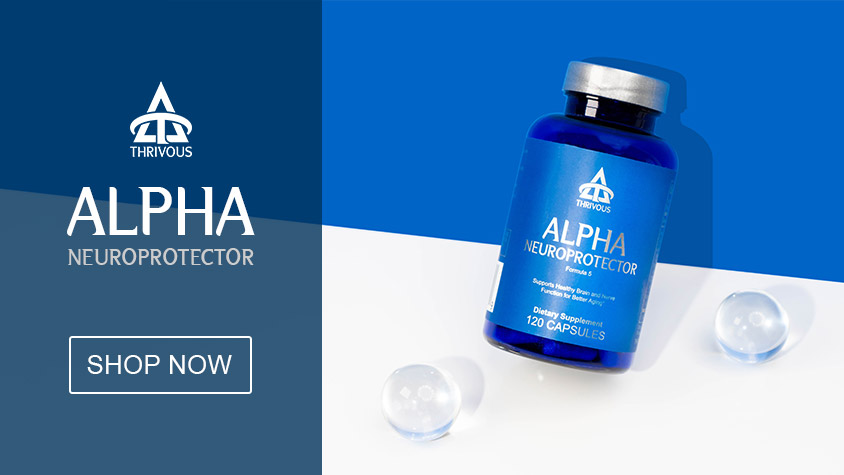Never Forget Phosphatidylserine to Enhance Memory

An elephant never forgets. At least that's how the old saying goes. I don't want to be an elephant, but I sure like the idea of maintaining a healthy memory as long as possible. Maybe someday I'll be able to use a brain computer interface to backup and recall my memories. But there are other things I can try today. And one of the easiest is supplementing Phosphatidylserine.
Phosphatidylserine is a phospholipid that occurs naturally in human and other animal cells, and in their diets. It is safe to consume, and dietary sources are generally meat and fish. Supplemental phosphatidylserine used to come from cows, but now it comes predominantly from plant sources, such as soy. Multiple studies on humans have found that Phosphatidylserine may support healthy brain aging, particularly improving memory:
- Positive effects of soy lecithin-derived phosphatidylserine plus phosphatidic acid on memory, cognition, daily functioning, and mood in elderly patients with Alzheimer's disease and dementia. In 2014, this study found that "a positive influence of [Phosphatidylserine] on memory, mood, and cognition was demonstrated among elderly test subjects". Participants used Phosphatidylserine derived from soy at 300 mg daily for 3 months.
- Phosphatidylserine containing omega-3 Fatty acids may improve memory abilities in nondemented elderly individuals with memory complaints: results from an open-label extension study. In 2014, this study (continuation of a 2010 study listed below) found that Phosphatidylserine "might be associated with improving or maintaining cognitive status in elderly subjects with memory complaints". Participants used Phosphatidylserine derived from krill at 300 mg daily for 4 months and 100 mg daily for another 4 months.
- The effect of soybean-derived phosphatidylserine on cognitive performance in elderly with subjective memory complaints: a pilot study. In 2013, this study found that Phosphatidylserine "may have favorable effects on cognitive function in elderly with memory complaints". Participants used Phosphatidylserine derived from soy at 300 mg daily for 3 months.
- Soybean-derived phosphatidylserine improves memory function of the elderly Japanese subjects with memory complaints. In 2010, this study found that Phosphatidylserine supplementation “could improve the memory functions of the elderly with memory complaints”. Participants used Phosphatidylserine derived from soy at 300 mg daily for 6 months.
- Phosphatidylserine containing omega-3 fatty acids may improve memory abilities in non-demented elderly with memory complaints: a double-blind placebo-controlled trial. In 2010, this study found that Phosphatidylserine “may improve cognitive performance in non-demented elderly with memory complaints”. Participants used Phosphatidylserine derived from krill at 300 mg daily for 4 months.
- The effect of phosphatidylserine-containing omega-3 fatty acids on memory abilities in subjects with subjective memory complaints: a pilot study. In 2010, this study found that "may have a favorable effect on memory in subjects with subjective memory complaints". Participants used Phosphatidylserine derived from soy and fish at 300 mg daily for one and a half months.
- An open trial of plant-source derived phosphatydilserine for treatment of age-related cognitive decline. In 2000, this study found that "healthy elderly volunteers meeting Age Associated Memory Impairment inclusion and exclusion criteria were treated ... all but two outcome measures elicited a significant drug over time effect". Participants used Phosphatidylserine derived from plants at 300 mg daily for 3 months.
- Cognitive decline in the elderly: a double-blind, placebo-controlled multicenter study on efficacy of phosphatidylserine administration. In 1993, this study found that "statistically significant improvements in the phosphatidylserine-treated group compared to placebo were observed both in terms of behavioral and cognitive parameters". Participants used Phosphatidylserine derived from cows at 300 mg daily for 6 months.
- Double-blind cross-over study of phosphatidylserine vs. placebo in patients with early dementia of the Alzheimer type. In 1992, this study found that “clinical global improvement ratings showed significantly more patients improving under [Phosphatidylserine supplementation] than under placebo”. Participants used Phosphatidylserine derived from cows at 300 mg daily for 2 months.
- Effects of phosphatidylserine in Alzheimer's disease. In 1992, this study found that “those treated with [Phosphatidylserine] improved on several cognitive measures relative to those administered placebo”. Participants used Phosphatidylserine derived from cows at 100 mg daily for 3 months.
- Effect of Phosphatidylserine on Cerebral Glucose Metabolism in Alzheimer's Disease. In 1990, this study found that Phosphatidylserine supplementation resulted in “an increment of glucose metabolism” relevant to “cognitive, neuropsychological and daily life performance”. Participants used Phosphatidylserine at 500 mg daily for 1 month.
- Double-blind randomized controlled study of phosphatidylserine in senile demented patients. In 1986, this study found "a trend toward improvement in the [Phosphatidylserine] treated patient". Participants used Phosphatidylserine derived from cows at 300 mg daily for one and a half months.
While Phosphatidylserine has been studied most frequently for supplementation by older persons, it has also demonstrated efficacy for younger persons. According to these studies, Phosphatidylserine may also improve memory and cognitive performance in young brains:
- The effect of phosphatidylserine administration on memory and symptoms of attention-deficit hyperactivity disorder: a randomised, double-blind, placebo-controlled clinical trial. In 2014, this study found that "PS significantly improved ADHD symptoms and short-term auditory memory in children. PS supplementation might be a safe and natural nutritional strategy for improving mental performance in young children suffering from ADHD". Participants used Phosphatidylserine derived from soy at 200 mg daily for 2 months.
- The effects of IQPLUS Focus on cognitive function, mood and endocrine response before and following acute exercise. In 2011, this study found that Phosphatidylserine “supplementation significantly increased cognitive function prior to exercise”. Participants used Phosphatidylserine derived from soy at 400 mg daily for half a month.
One study of Phosphatidylserine supplementation has reported divergent results. I'll refer to it as the "Jorissen study".
- The influence of soy-derived phosphatidylserine on cognition in age-associated memory impairment. In 2001, this study found that Phosphatidylserine "does not affect memory or other cognitive functions in older individuals with memory complaints". Participants used Phosphatidylserine derived from soy at 300 mg daily for 3 months.
Another study challenged the divergent results of the Jorissen study:
- The effect of soybean-derived phosphatidylserine on cognitive performance in elderly with subjective memory complaints: a pilot study. Regarding the Jorissen study, this 2013 study observed, "one possibility for the ineffectiveness of [Phosphatidylserine] in their study was due to degradation of the [Phosphatidylserine] with time ... Powder [Phosphatidylserine] is more stable than liquid".
Accordingly, when selecting a product, look for Phosphatidylserine in powder form rather than liquid form. This may provide the greatest potential for nootropic effect.
To improve the nootropic effect of Phosphatidylserine, consider combining it with Ginkgo Biloba. Ginkgo and Phosphatidylserine supplementation in combination may be more effective than either alone, according to this study:
- Acute cognitive effects of standardised Ginkgo biloba extract complexed with phosphatidylserine. In 2007, this study found that combined Phosphatidylserine and Ginkgo Biloba supplementation “resulted both in improved secondary memory performance and significantly increased speed of memory task performance”.
Thrivous Alpha
Based in part on the studies cited above, Thrivous developed Alpha Neuroprotector. It's designed to enhance brain and nerve function for better aging. Each serving provides clinical doses of Phosphatidylserine and Ginkgo Biloboa. Alpha is available to purchase online in the Thrivous store.
More Articles
Read more articles at Thrivous, the human enhancement company. You can browse recent articles in Thrivous Views. See other Geroprotectors, Nootropics or Product Ingredient articles. Or check out an article below.
-
Support Healthy Brain Aging with Ginkgo Biloba
Ginkgo Biloba, a tree native to China, is among the most-studied natural nootropics. Some tout its efficacy to improve memory, cognition, ...
-
Spectacular Advances for Brain Interfacing
This is a double issue of Pulse: I skipped last week’s issue. I have this to say in my defense: ...



